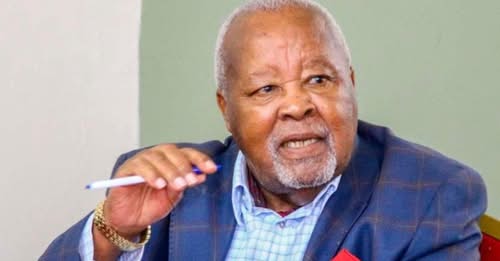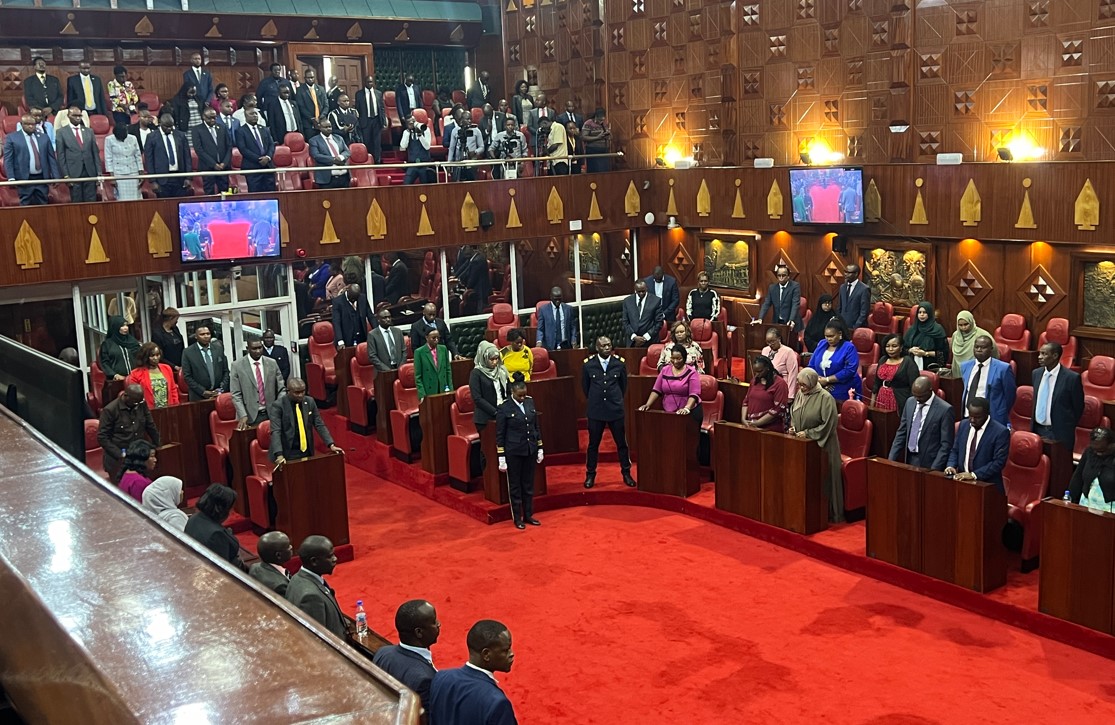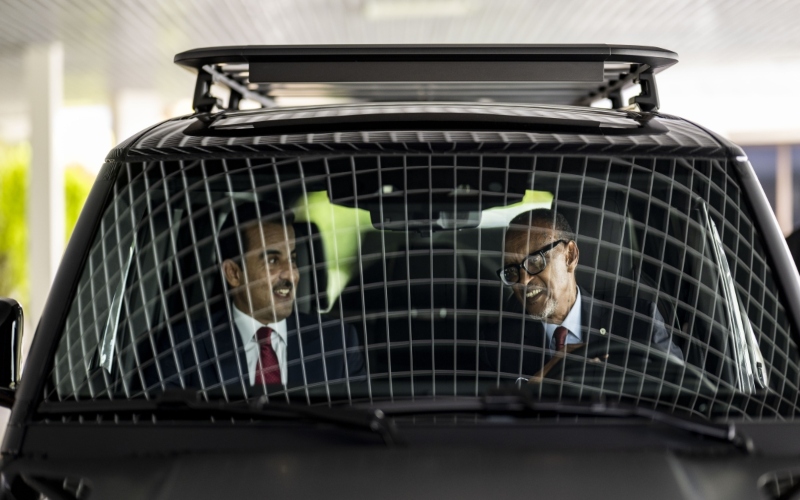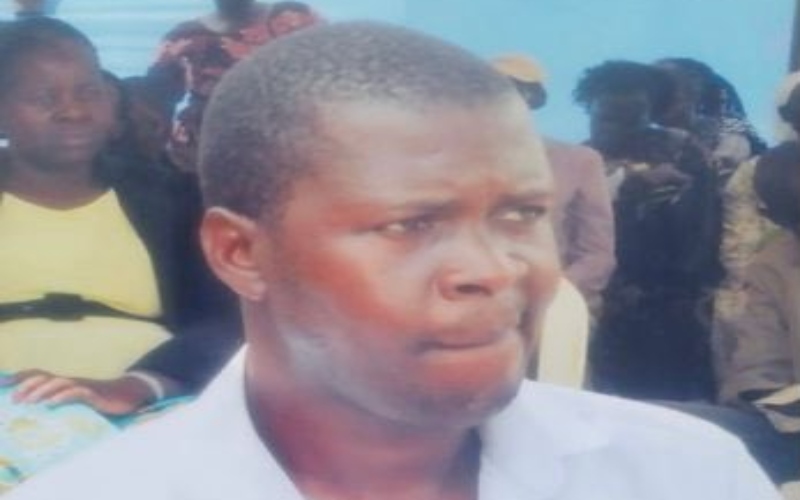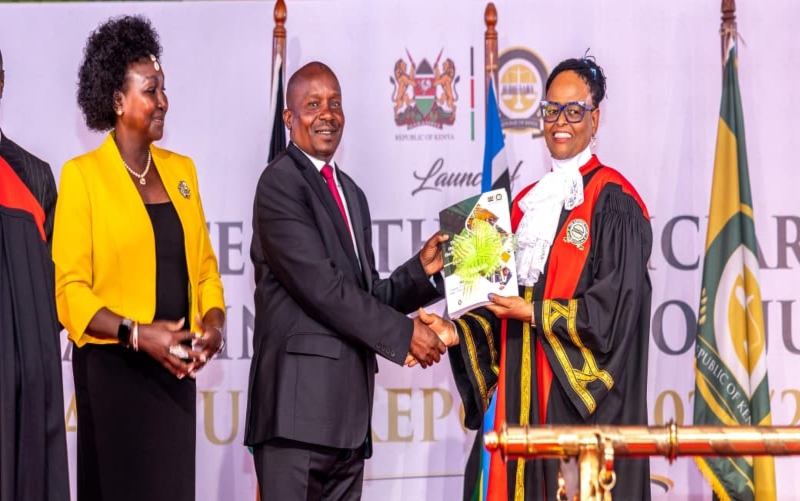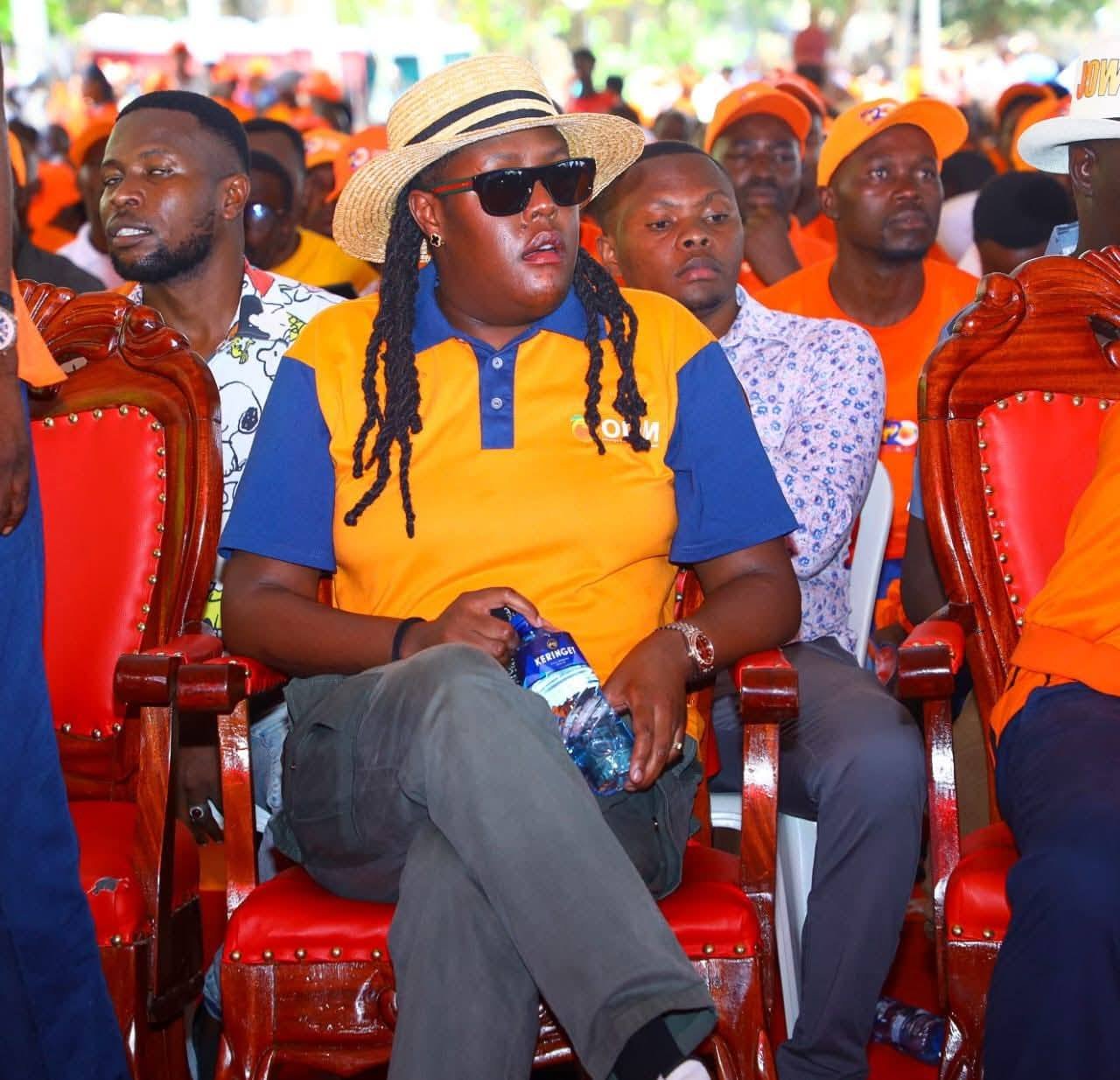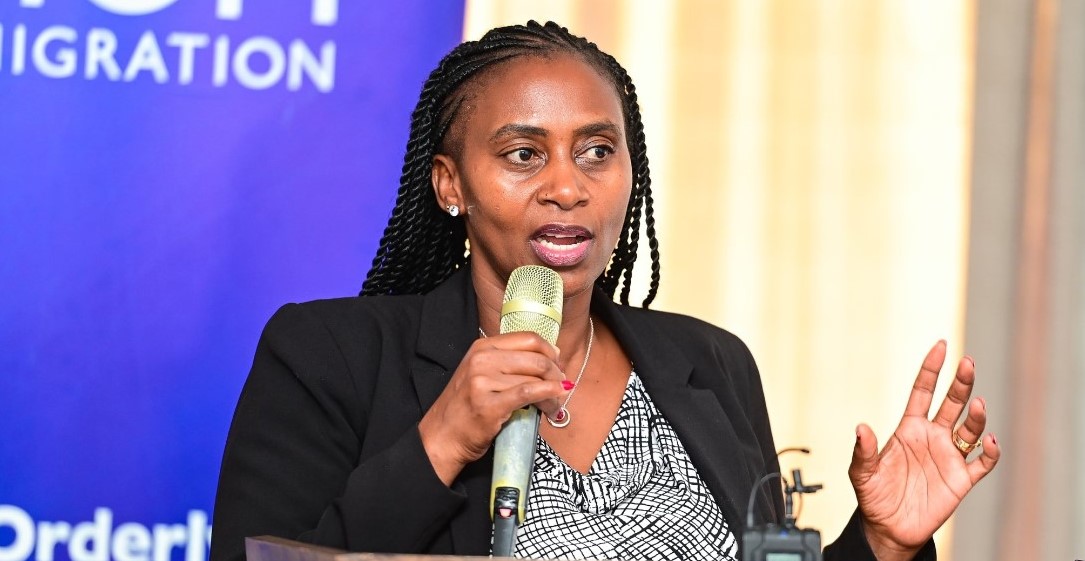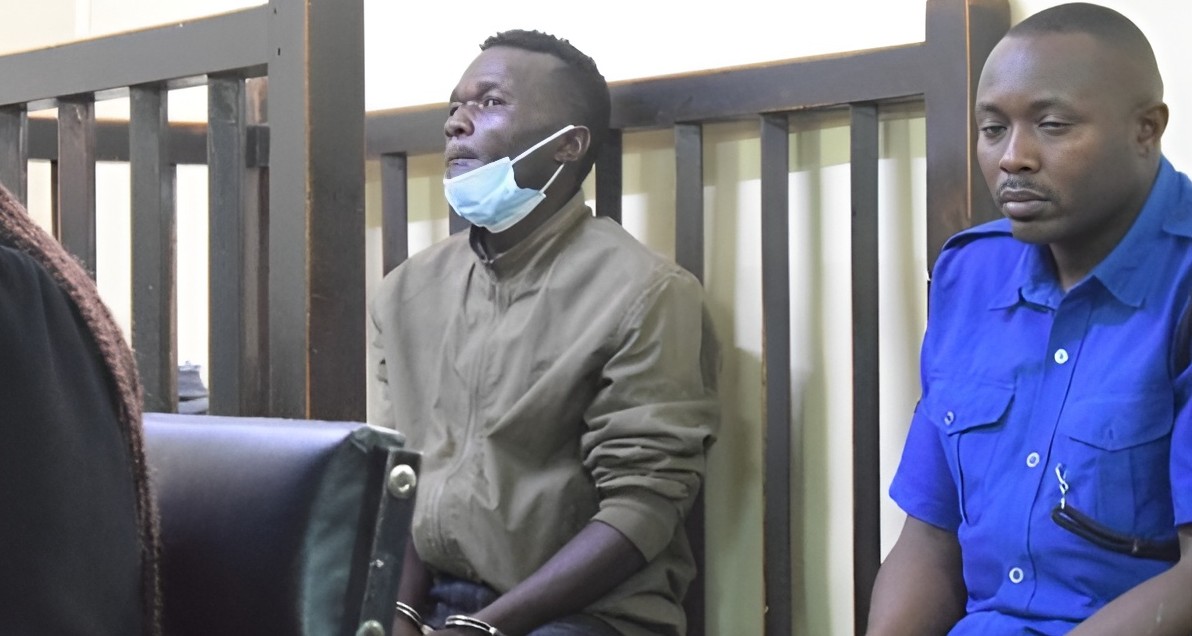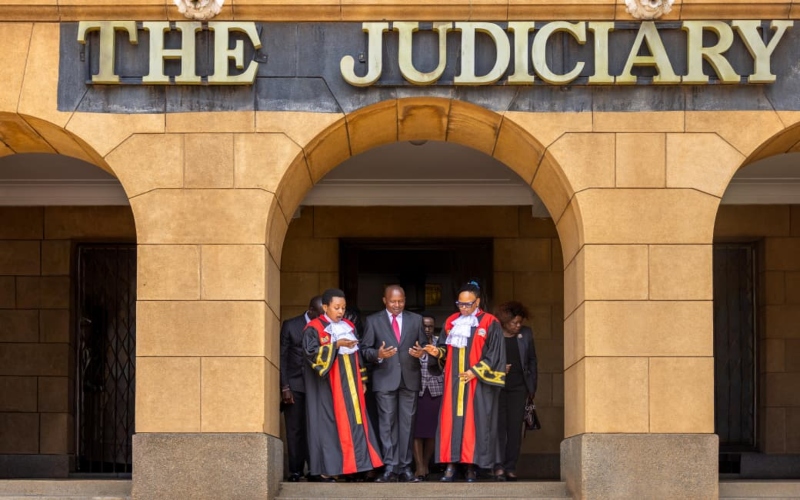Ruto urges orderly transition in Haiti as Kenyan-led MSS mission nears end
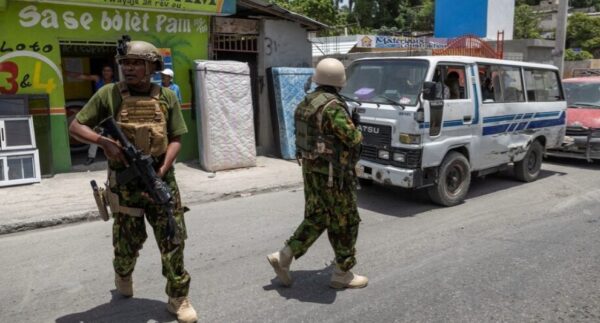
Ruto emphasised that Kenya’s response was driven by the belief that it was joining a genuinely multinational effort.
As the mandate of the Multi-National Security Support (MSS) Mission in Haiti nears its end, President William Ruto has called for an orderly transition that safeguards the gains achieved by the Kenyan-led force.
He made the remarks during his speech at the ongoing 80th United Nations General Assembly in New York on Wednesday evening.
More To Read
- Haiti security forces say era of unchecked gang power is over as crackdown intensifies
- Haiti, Panama and Curaçao seal historic World Cup spots
- ‘Kenya can’t do it alone’: US urges more nations to join Haiti’s Gang Suppression Force
- Millions of lives at risk, warn UN food agencies, as hunger crisis worsens
- At least 20 dead as Hurricane Melissa hits Haiti
- Green light for Gang Suppression Force tells Haitians ‘they are not alone’, Security Council hears
"As the UNSC deliberates on the next steps, we must not lose sight of the fact that the situation in Haiti demands sustained, coordinated, and undivided international attention. A careful and orderly transition from MSS is essential to consolidate the hard-won gains so far achieved. I urge the Security Council and all partners to remain steadfast in ensuring that Haiti moves forward and on a path of peace, stability, and renewal," said President Ruto.
As the lead nation of the force, whose mandate ends on October 2, the president highlighted that the experience of Kenyan police officers in Haiti reflects the challenges within the current global security governance framework, which initially met Haiti's plea for help with delayed action.
"For far too long, the people of Haiti called out to the world; too often, their pleas were met with silence, hesitation, or half measures. Haiti became a tragic reminder of what happens when the international community looks away, prevaricates, or offers half-hearted support," he said.
He emphasised that Kenya’s response was driven by the belief that it was joining a genuinely multinational effort.
"We welcomed and fully embraced Resolution 2699, by which the United Nations Security Council authorised the MSS with Kenya as the lead nation. Drawing from our decades in peace support operations, we stepped forward, stepped up, and deployed our officers to confront the rampant menace of gang violence in Port-au-Prince and its environs," he said.
Volatile environment
President Ruto acknowledged that the mission has operated in a volatile environment under significant constraints.
"It has been underfunded, underequipped, and operated below 40 per cent of its authorised personnel strength. Our police officers have variantly shouldered responsibilities without the full logistical support that would accompany any mission sanctioned by the United Nations. Despite these challenges and against all odds, the MSS has delivered results many thought were impossible," he said.
He highlighted key achievements during Kenya’s deployment, including rescuing the presidential palace from gang control, restoring the police headquarters and training centre, reopening schools, clearing roads of gang activity, reducing kidnapping cases, and resuming normal operations at the airport and seaport.
"If so much could be achieved with limited resources and stretched personnel within just 15 months, what more could have been achieved if the United Nations fraternity had truly acted together with the people of Haiti," he posed.
Without directly referencing the newly proposed Gang Suppression Force, which is set to be debated at the Security Council alongside a proposed UN Support Office this week, he assured the assembly that, with adequate personnel, resources, and logistical support, Haiti’s peace can be fully restored.
Top Stories Today


